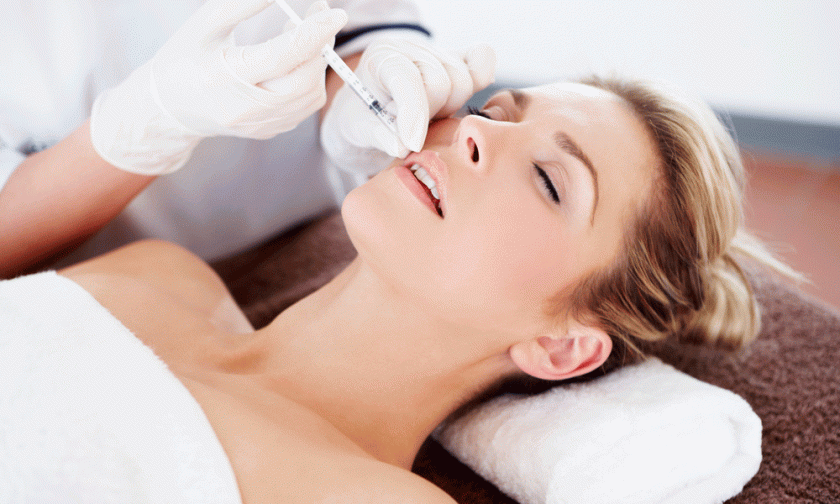Health authorities have investigated cosmetic surgery and non-surgical cosmedical procedures such as injectables being carried out by unqualified people in private residences and even hotel rooms in NSW and Victoria.
The illegal procedures — including double eyelid suturing, nose bridge lifts, protein suture facelifts, the administration of Botox, dermal fillers and Glutathione skin whitening injections — were advertised through social media, in particular mobile and text messaging service WeChat.
The medications used by the non-registered “practitioners” are imported and not on the Australian Register of Therapeutic Goods (ARTG).
One patient suffered scarring and eye damage after a double eyelid suture carried out in a Sydney apartment.
The NSW Health Care Complaints Commission (HCCC) has received an increased number of complaints about cosmetic procedures being performed by non-medical people, particularly in the Sydney area.
A search of the premises conducted by officers from the HCCC found illegally imported neurotoxins (the essence of anti-wrinkle injections) and other prescription-only aesthetic products.
“The treatment caused bruising and scarring to the patient and damage to her eyelids,” a spokesman for the HCCC said.
“The commission’s investigation has so far determined that the practitioner who carried out the surgery is not registered as a medical practitioner in Australia and was not qualified to conduct the surgery.”
The import and supply of medication not on the register is unlawful and potentially very dangerous.
“Cosmetic medical procedures should only be done by a registered medical practitioner, a nurse practitioner, or a registered nurse under a doctor’s supervision,” says Dr Cath Porter, Board Member of the Cosmetic Physicians College of Australasia (CPCA).
“Injectables are S4 medications, which means they must be prescribed by a doctor or a specialist nurse practitioner who has prescribing rights.
“When you see a registered practitioner you know you are receiving care from someone who is appropriately trained and held to account to national standards.
“If you see someone who is not registered, you just don’t know what you’re getting.
“From my point of view [people risking procedures with `backyard’ operators] is absolutely crazy behaviour.
“They are playing with fire and taking huge risks. They have a much higher chance of experiencing complications that may have long term consequences.”
If your salon, spa or clinic does not provide an in-house or consultant registered cosmetic injector for your clients, make it your business to ensure that those clients who are seeking injectables elsewhere know they are potentially taking their life in their hands if they are not attending a registered practitioner.
If cost is a factor in their thinking (eg. if they are looking for cheaper treatments) of having a “backyard” job, remind them: What price their health and looks?
Cosmetic injections around the eye area, for instance, can potentially cause blindness.
IF YOU ARE OFFERING, OR WANT TO OFFER INJECTABLES
Currently, it is not required by law to have an accredited facility for injectables, according to Dr Cath Porter.
She has the following advice for salons, spas or clinics seeking to provide clients with access to injectables, either by having a doctor or nurse visit on a regular basis, or based full-time at your business.
“A cosmetic clinic should be set up like a clinical procedure room,” she says. “A minimum standard would be:
- No carpet or soft furnishings
- A treatment chair or bed that can be sanitised post-treatment
- A sink for hand washing
- An appropriate emergency kit easily available
- Appropriate overhead lighting
- A contaminated waste and sharps disposal
- A fridge to store relevant products
When employing the services of a doctor or nurse injector, I would recommend doing your homework.
Make sure the doctor or nurse that is treating you is registered with AHPRA.
Choosing a doctor who is a member/fellow of the CPCA guarantees that your practitioner has post graduate training in cosmetic procedures.
Always look for TGA-approved products as the safety of illegally imported products cannot be guaranteed.”



